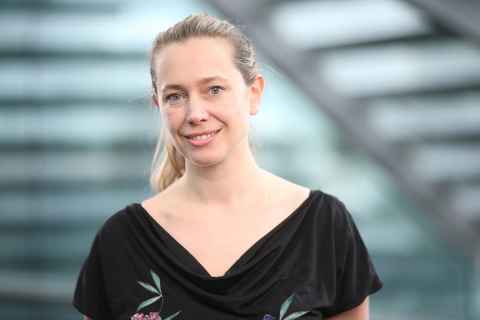Business School keeps taking care of businesses
2 June 2020
Staff at the University of Auckland Business School have been sharing their expertise with Auckland businesses facing a challenging time in a Covid-19 environment.

As well as getting to grips with Zoom and other forms of online-only teaching, staff at the University of Auckland Business School have been sharing their expertise with Auckland businesses.
There have been many requests made by small to medium enterprises (SMEs) facing challenges resulting from the Covid-19 pandemic. With future projections thrown out the window, they’ve needed to recalibrate.
Not long after lockdown, Dr Antje Fiedler, a senior lecturer at the Graduate School of Management, set up a pro-bono business advisory group, comprising Business School experts keen to lend a hand.
“We set it up to give business consultancy advice but we soon decided to run webinars as well to reach more people.
“We worked with industry bodies and facilitated these sessions for their members.”
Dr Cristiano Bellavitis, senior lecturer in innovation and entrepreneurship, covered subject matter including the entrepreneurial finance markets and the impact of Covid-19 on venture funding around the world.
He says one of the biggest concerns for SMEs is uncertainty.
“It’s so difficult to understand what will happen, both economically and with the virus. If a second lockdown is implemented, how will governments and consumers react? These risks are magnified by the global nature of the situation, making investments very risky.”
His research has shown global venture funding has already fallen 50 to 70 percent on last year.
“There’s not much entrepreneurs can do if they are highly exposed to international immigration or tourism. If borders remain closed, the only way to survive is to hibernate the business.”
Cristiano believes there are four key factors at play that will determine if an entrepreneur’s business will survive.
“The first is the type of industry. For example, tourism-exposed companies will struggle much more than tech companies. The second is financial leverage – if the company entered the crisis with high levels of debt, they will logically struggle. Then there’s operational flexibility, so companies with high fixed costs will find it hard to adjust to the new environment, and the final thing is if there is government intervention.”
He says long-term we need to invest in research and technology and aim to create world-leading companies with resilience.
“We should have a project similar to Vision 2025 (in China), that leverages our potential and resources for a better future.”
Antje says where staff haven’t been able to give businesses guidance, the group has directed them to organisations who could.
And there’s a bit of quid pro quo. Some businesses are now collaborating with masters students.
“At least one Masters in International Business student now has a project out of it,” says Antje. “Another student who has a lot of experience in marketing through working overseas is providing advice to a company.”
Dr Deepika Jindal’s knowledge of human resource management has been vital in the face of many businesses having to restructure, and Dr Doug Carrie (marketing) and Dr Steve Leichtweis (Head of the Centre for Learning and Research in Higher Education) are providing tips on engaging people in an online environment to support Private Training Establishments (PTEs).
Antje plans to organise ongoing online workshops in coming months, and more staff have offered their expertise to try to help New Zealand businesses. Future webinars are planned on subjects such as negotiation (Andrew Patterson, management and international business), the importance of effective digital business models (Professor Julia Kotlarsky, information systems and operations management), and SME resilience (Dr Bridgette Sullivan-Taylor, Graduate School of Management).
“We are not claiming we are necessarily the experts,” says Antje. “But we can share best practices and tips to tackle these challenges and think collectively.”
- Denise Montgomery
Disclaimer
Businesses who seek guidance from University staff accept responsibility for making an independent assessment of guidance provided, and may need to seek further advice from professional services firms in respect of legal, accounting and tax issues.
This article first appeared in the June 2020 edition of UniNews magazine.